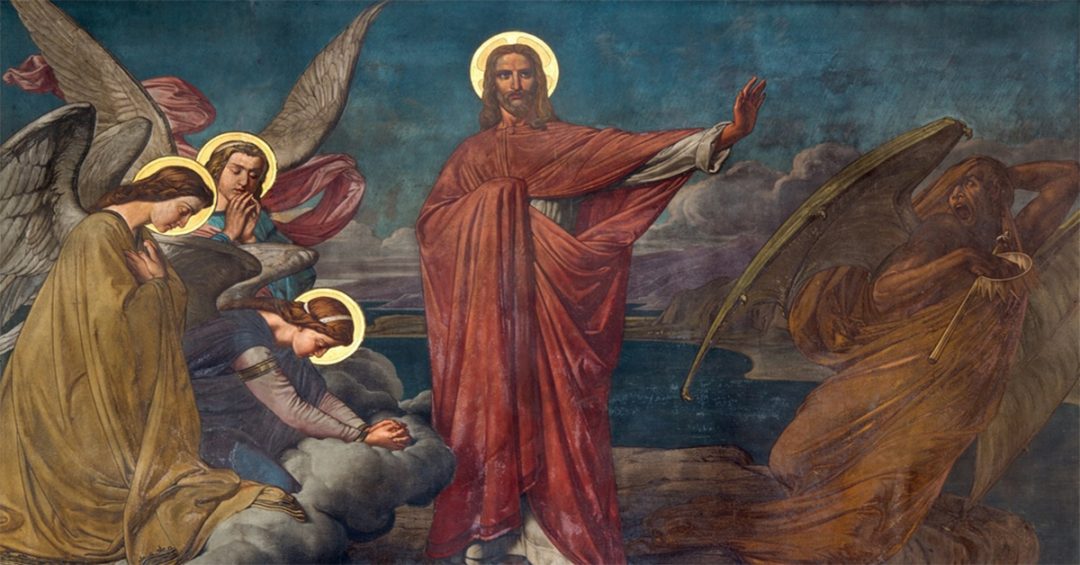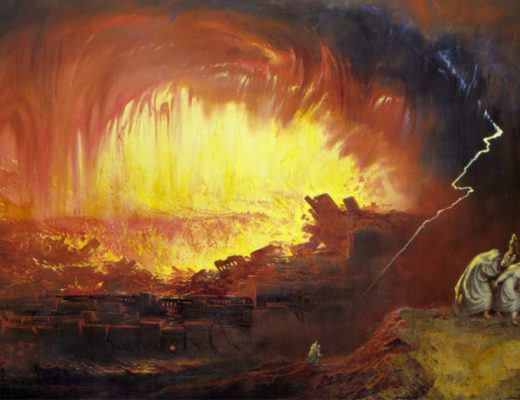In conformity with the teaching of the Bible, the Church and Tradition God created us in His Image and Likeness and blessed us with freedom. But our first parents Adam and Eve misused or abused that freedom when they chose to disobey God which led each one of us to inherit and be born with what we call the “Original Sin.”
But by the Sacrament of Baptism, all sins are forgiven, original sin and all personal sins, as well as all punishment for sin (Council of Florence (1439): DS 1316); also through Baptism the grace of God is infused in us to share in God’s life and be virtuous before Him. Therefore, all the sins committed after baptism are the result of our choices as free people through the will of God and When we choose not to follow God’s law, we commit a sin whether we do it on purpose or by accident. Moreover every sin is an abuse in its effect to that freedom.
The Gospel teaches that practicing serious sins will prevent the person from obtaining eternal life. For instance St Paul refers to such serious sins in his letter to Galatians (5:19-21) as “the works of the flesh.” “sexual immorality, impurity and debauchery; idolatry and witchcraft; hatred, discord, jealousy, fits of rage, selfish ambition, dissensions, factions and envy; drunkenness, orgies, and the like.” Then he warns: “Those who practice such things will not inherit the Kingdom of God.”
Also in the Old Testament, the book of Proverbs (6:16-19) clearly asserted, ‘there are six things the Lord hates, seven that are detestable to him: haughty eyes, a lying tongue, hands that shed innocent blood, a heart that devises wicked schemes, feet that are quick to rush into evil, a false witness who pours out lies and a person who stirs up conflict in the community.’
What is meant by the term ‘deadly or mortal sin’?
According to the Catechism of the Catholic Church, deadly means they destroy the life of grace infused in us at Baptism. In other words, they are deadly because they are deliberate and offensive acts that are directly incompatible with God and reason and are committed with full knowledge and intention of the person.
St John in his first letter (5:16–17) teaches that there is something like this as “deadly sin”, he explains: ‘if anyone sees his brother committing a sin not leading to death, he shall ask, and God will give him life. To those who commit sins that do not lead to death. There is sin that leads to death; I do not say that one should pray for that. All wrongdoing is sin, but there is sin that does not lead to death.”
Also the expression “deadly” can also be translated as “sin that incurs eternal death or damnation.” In which is hell forever.
And St Paul informs the Hebrews (10:26), “If we deliberately keep on sinning after we have received the knowledge of the truth, no sacrifice for sins is left.” Then the Church explains (1033) on how, only by sin, we can put our salvation at risk by freely choosing not to love God and unite with Him. And that is a grave sin against God first of all, against our neighbour and ourselves.
In the first part of his letter St John (3:14) explains how love gives life to the soul of the person and acting contrary to that brings death to the soul, stating: “We know that we have passed from death to life, because we love each other. Anyone who does not love remains in death.” and in the second part of his letter (1 John 3:15), he affirms the harsh reality that many refuse to believe and a soul could lose its eternity by refusing to love. “Anyone who hates a brother or sister is a murderer, and you know that no murderer has eternal life residing in him.” Certainly the concept of death here is a spiritual death.
Our Lord warns us in the Gospel of Matthew (25:31-46), “… 45 Truly I tell you, whatever you did not do for one of the least of these, you did not do for me.” “Then they will go away to eternal punishment, but the righteous to eternal life.” which means we will be separated from God if we fail to meet the serious needs of His brothers and sisters who are the poor and the little ones in which they are our brothers and sisters as well. So the Death that the mortal sin incurs without repentance and acceptance of God’s merciful love means that we will remain separated from Him forever and by our own free choice. Precisely that is what we call “hell” and our Lord calls it the ‘eternal punishment’; the self-exclusion from communion with God and His holy people.
Moreover, Jesus often speaks of “Gehenna” of “the unquenchable fire” reserved for those who to the end of their lives refuse to believe and be converted, where both soul and body can be lost ( Mt 5:22,29; 10:28; 13:42,50; Mk 9:43-48). Jesus solemnly proclaims that He “will send His angels, and they will gather . . . all evildoers, and throw them into the furnace of fire,” (Mt 13:41-42); where He will pronounce the condemnation: “Depart from me, you cursed, into the eternal fire!” (Mt 25:41), (1034).
The Catholic Catechism explains that, “Mortal sin is a radical possibility of human freedom, as is love itself. It results in the loss of charity and the privation, LOSS of Sanctifying Grace, that is, of the state of grace. If it is not redeemed by repentance and God’s forgiveness, it causes exclusion from Christ’s kingdom and the eternal death of hell, for our freedom, has the power to make choices forever, with no turning back. However, although we can judge that an act is in itself a grave offense, we must entrust judgment of persons to the justice and mercy of God.” (1427) Furthermore, God, with his merciful love, is greater than our hearts, because he knows our depths and weaknesses as Saint John teaches in (1 John 3:20).
God therefore, is the only power that can help us to overcome all our psychological and spiritual resistance. “Bear in mind the omnipotence and mercy of God, no one should despair of anyone’s salvation in this life.” Summa Theologiae, II-II, q. 14, a. 3, ad primum.
As long as we breathe the breath of life, our mortal sins can be forgivin if we are truly regret and atone for them and do whatever is necessary as the church advises us to do in order to obtain forgiveness because the Sacraments of Reconciliation is our freedom to conversion at that time the kingdom of God is at hand; repent, and believe in the Gospel. (Mk 1:15)
When is sin mortal?
For a sin to be deadly or mortal, it must meet three conditions: RP 17 § 12. Reconciliation and Penance, John Paul II
The sin is of a grave matter
The sin is committed with full knowledge of the sinner
The sin is committed with deliberate consent of the sinner
What is “grave matter”?
The Church defines “grave matter” like this:
“Grave matter is specified by the Ten Commandments, corresponding to the answer of Jesus to the rich young man: ‘Do not kill, Do not commit adultery, Do not steal, Do not bear false witness, Do not defraud, Honor your father and your mother.’ Mk 10:19. The gravity of sins is more or less great: murder is graver than theft. One must also take into account who is wronged: violence against parents is in itself graver than violence against a stranger.” (1858)
What is “full knowledge”?
It’s that you already know and are aware and have full understanding that the act you are committing is wrong and it is a serious sin.
What about “deliberate consent”?
Deliberate consent is that you choose to do the act with full awareness of its sinful nature, character and you have the freedom to do so whether that is social, physical, intellectual, or psychological. As the Church explains, Mortal sin requires full knowledge and complete consent. It requires knowledge of the sinful character of the act, of its opposition to God’s law. It also implies a consent sufficiently deliberate to be a personal choice. (1859)
If we die in state of a mortal sin, we condemn ourselves to hell by our own choices. Because by committing only one mortal sin, that sin can be sufficient to destroy the charity in our heart for we have violated the law of God and that can separates us from him who is in fact the utmost end and beatitude of our being and by sinning we choose an inferior good to him.(1855-6)
Last but not least, If a mortal sin is committed, the sinner must repent, make up (Reparation) for that wrongdoing, and restore his relationship with God through the Sacrament of Reconciliation because mortal sins cannot happen by chance but rather it signifies that when a person is committing a mortal sin his intent is deliberate and plainly is rejecting God’s law and His love.






No Comments